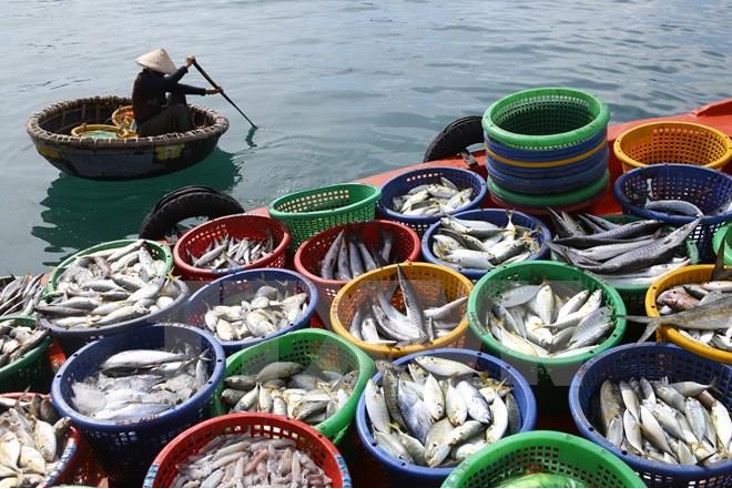On May 6, 2025, a training program on Monitoring, Surveillance, and Control of Illegal, Unreported, and Unregulated (IUU) fishing activities was held in Khanh Hoa Province.
Through this program, fisheries management officers from 8 ASEAN countries, East Timor, and Papua New Guinea were brought together in a rare training and collaboration forum to strengthen their capacity to combat IUU fishing.
The Australian Government funds this initiative through the Australian Department of Agriculture, Fisheries, and Forestry. The program began in 2022 and is expected to run until 2027. In 2025, the program will provide technical guidance on DNA analysis to identify species, size, and origin of fish, supporting the monitoring and inspection of the legality of fishing vessels, as well as tracing the origin of seafood imports and exports.
 In 2025, the program focuses on providing technical guidance on DNA analysis to identify species, size, and origin of fish.
In 2025, the program focuses on providing technical guidance on DNA analysis to identify species, size, and origin of fish.
The 2025 program, expected to last 12 weeks, is one of the few specialized training programs in Vietnam and globally, focusing on fisheries surveillance skills and IUU fishing combat. The program is designed to connect theory with practical fieldwork while encouraging multi-dimensional exchanges to enhance the applicability of the training once the participants return to their countries.
The program is not only technical in focus but also aims to build a regional fisheries cooperation network—a critical missing element in Southeast Asian fisheries governance. The participants are encouraged to share experiences, analyze policies, and discuss effective monitoring models, thus laying the foundation for cross-border cooperation, risk alerts, and data sharing.
In the context of growing global pressure for sustainable fisheries development, the IUU fishing and sustainable fisheries program in Southeast Asia, led by Vietnam, holds strategic significance. It is not only a platform for skill-sharing but also a foundation for creating a regional fisheries community—where countries share the responsibility to protect the oceans and strive for a sustainable future.
After two years of implementation, the program has recorded many positive results, including establishing an effective information network and disseminating surveillance skills among participating countries. In the next phase, the program is expected to expand to include satellite monitoring, community-based co-management models, and improving the legal framework on IUU in the region.
According to the program's Senior Director, Mr. David Power, an expert from the Australian Fisheries Management Agency, enhancing scientific analysis capacity for fisheries surveillance forces will help regional countries better control illegal fishing activities while also boosting transparency and reliability in the seafood supply chain—key factors in entering the global market.
International experts have also noted that Vietnam, not only hosting the program but also serving as a knowledge-sharing center, is demonstrating regional responsibility, especially as the country works to lift the EU's yellow card on IUU and enhance the image of Vietnam's fisheries internationally.